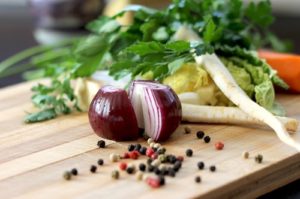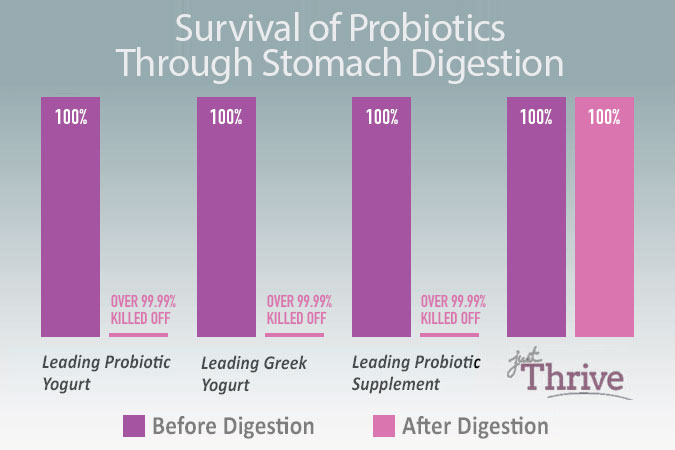 Yep, over the last few years we have heard oodles and oodles about the human microbiome. About probiotics, prebiotics, fermented foods and bone broth just as a start for gut related “buzz” words. I could also throw in gelatin, collagen, collagen peptides, bacteroidetes…… but I’ll get to the point.
Yep, over the last few years we have heard oodles and oodles about the human microbiome. About probiotics, prebiotics, fermented foods and bone broth just as a start for gut related “buzz” words. I could also throw in gelatin, collagen, collagen peptides, bacteroidetes…… but I’ll get to the point.
In my personal and clinical experience, yes understanding the significance of each of the above can have great health benefits. Sometimes though, we get too far down the rabbit hole and lose sight of the basics—things we can do on a daily basis for our individual health that are extremely powerful when done consistently.
There are many contributing factors that affect and compromise our digestion, and there are lots of approaches we can take to restoring gut health. It’s a journey and certainly a process of discovery for us all. The good news is, with time, combining…
- a clean wholesome diet,
- a balanced lifestyle (including less stress and more sleep)
- plus restorative products for the gut
…most of us are able to rebuild strong digestive health. This in turn helps to secure our overall mental and personal well-being.
Yes it’s true that factors such as food intolerances, stress, adrenal burnout, hormones, lifestyle, emotional disposition, anxiety, chemicals, parasites, bacteria, medications, relationships and sleep all affect our gut and overall health. These elements can also influence how our body responds to lifestyle changes we make.
For example, if we have parasites, then these tricky little bludgers need to be addressed in addition to other proactive measures. Stress and adrenal fatigue can mean that our healing journey will also need to be more in depth and may take longer than we desire. Speaking with health professionals who are up-to-date experts on gut health will help with these challenges.
However, here’s a refresher for all of us on some basic steps to harness (or re-harness) strong gut health through simple daily habits:
 1. Eat Fresh Food
1. Eat Fresh Food
To maximise nutrition, we need to know what we are eating. Foods need to be high quality, fresh and simple. Try and make your meals yourself, have a cook up on the weekend if need be or have them prepared by someone who loves you. This way, you’ll know exactly what’s going into your body. Stock your fridge full of vegetables and proteins that are easy to throw together. Make sure the majority of your meals comprise of vegetables, salads and fresh whole fruits.
2. Incorporate Fresh Fruits and Vegetables (a source of prebiotics)
Fruit and vegetables are high in soluble and insoluble fibre. Fibre acts as a prebiotic and promotes healthy gut function. It also helps promote peristalsis in the gut and aids in the elimination of waste.
3. Consider Other Prebiotics
Prebiotics are non-digestible foods or ingredients that promise the growth of beneficial microorganisms in the intestines. In other words, they’re food for our gut bacteria. Good examples of prebiotics include oats, bananas, onions, garlic, leeks, asparagus, and artichokes.
4. Eat Fermented Foods.
Fermented foods are naturally packed with probiotics that promote healthy gut bacteria. Examples include kefir, kombucha tea, yoghurt, miso, sauerkraut, kimchi and fermented vegetables. For breakfast try two eggs with a tablespoon of sauerkraut and half an avocado.
5. Stimulate Your Digestive System
Introduce bitter foods into your diet that incite digestive juices and help to cleanse the liver. Each morning drink the juice of one fresh lemon in two glasses of filtered water or a tablespoon of Apple Cider Vinegar in a large glass of water. These help to stimulate the production of bile, which acts like a natural laxative and increases stomach acid allowing you to break down your food more effectively.
Stimulate your digestive juices throughout the day by consuming water with a dash of Apple Cider Vinegar, or with a squeeze of lime or grapefruit juice. You might also like to try some dandelion, peppermint and ginger tea.
 6. Take Probiotics
6. Take Probiotics
Probiotics are broadly defined as strains of bacteria that support the health of the host in some way. Basically, they’re live bacteria, usually ingested in pill, powder, or liquid form. It’s important to remember that our ancestors got their probiotics from the foods they consumed. They ate off the land and much of the food and liquid they consumed was brimming with mega-doses of environmental bacteria. In this modern age of sterilized food systems, these essential strains have been nearly eliminated and our exposure to them is very limited. This makes supplementing with them a very important part of a healthy lifestyle.
Recent discussions and studies outline how some sources of probiotics are more beneficial than others. Before you commit to a product, it’s important to know whether there’s any data to suggest that the form of probiotic you’re purchasing can actually help the gut or the condition you’re trying to assist. Unfortunately that store-bought yoghurt or pizza bases with added probiotics, or that ‘off the shelf’ probiotic may not give you what you need, in fact they may not be that beneficial at all.
I’ve been spending a bit of time diving into all the latest insights with probiotics. Interestingly a recent study comparing…
- Just Thrive®,
- yoghurt,
- Greek yoghurt and
- the leading probiotic brand sold in health food stores
…and found that Just Thrive® Probiotic was able to make it ALL THE WAY through the challenging acidic stomach digestive environment to the small intestine. There, friendly bacteria were able to colonize for optimal digestive health and overall wellness.
The challengers (yogurt, Greek yogurt and the leading probiotic supplement) did not seem to survive the body’s harsh stomach acid. For a probiotic to perform its function, the bacteria strains have to survive the stomach’s harsh gastric environment and arrive to the intestines alive.
Just Thrive® replaces the outdated approach of “reseeding” the gut (which would be like throwing seeds in an abandoned garden and hoping they grow), and opts for the more integrative approach of “reconditioning” the gut which removes pathogens and bad bacteria, thereby allowing good bacteria to grow and thrive. The specialised spore-based bacilli formulation of Just Thrive® Probiotic guarantees the survivability of our probiotic strains through the stomach and upper digestive system. It not only provides digestive and immune support as a potent probiotic, but also delivers powerful and necessary antioxidants to the GI tract. I like that approach.
 7. Avoid Processed Foods and Inflammatory foods
7. Avoid Processed Foods and Inflammatory foods
Processed foods contain additives and chemicals, which can irritate a sensitive digestive system. These include foods high in preservatives, flavour enhancers (such as MSG), refined sugar, wheat, gluten and soy, artificial sweeteners, bulking agents, thickeners and gums. Examples include white bread, soft drinks (sodas), white flour, white pasta, processed cereals, processed meats, store-bought stocks, soups and salad dressings.
Processed foods are highly inflammatory while wheat, gluten, milk, refined sugar, alcohol and coffee, also aggravate the digestive system. Consider how you can minimise or avoid these foods.
8. Introduce Anti-Inflammatory Foods
Start to introduce natural anti-inflammatory foods into your diet that include turmeric, green leafy vegetables, such as spinach, kale, and collards, chlorophyll, Aloe Vera juice, fatty fish like salmon, mackerel, tuna, and sardines, nuts like almonds and walnuts, oils such as olive and coconut, fruits such as strawberries, blueberries, cherries, oranges and tomatoes.
9. Drink Plenty of Water
Water nourishes the digestive tract, supports the absorption of nutrients and removes waste and toxins. Aim to drink a minimum of 2–3 litres per day (8–12 glasses). Make sure it’s filtered water though peeps!
10. Get Your Body Moving!
Physical activity speeds up digestion, increases blood flow to all of your organs, and stimulates the muscles in the GI tract. It can even tone the walls of your colon. Aim for at least 30 minutes of exercise every day.
11. Be Mindful When Eating
Studies show that when people are distracted while eating, they consume significantly more than when they are at a dinner table focusing on their food. Also, try to avoid eating in front of the TV or computer. A great habit to get into for digestive health is to eat until you are only 80 percent full, Overeating can increase the pressure in the abdomen causing bloating, reflux, heartburn and delayed digestion.
 Slow down and relax when you eat and chew your food well to reduce bloating and incomplete digestion. Eating slowly gives your stomach time to prepare to digest the nutrients you are giving it and allows your body and brain time to tell you when you’ve had enough to eat.
Slow down and relax when you eat and chew your food well to reduce bloating and incomplete digestion. Eating slowly gives your stomach time to prepare to digest the nutrients you are giving it and allows your body and brain time to tell you when you’ve had enough to eat.
12. Avoid Going to Bed on A Full Stomach
Try not to eat at least 3 hours before going to bed give your body time to digest properly. Consider making dinner the smallest meal of your day and lunch your main meal. Try a light soup or a shake or smoothie rich in protein in preference to a heavy meal in the evenings.
So there you have it—lots of good daily reminders there folks!
—
Here are some other articles on probiotics that you might be interested in…







